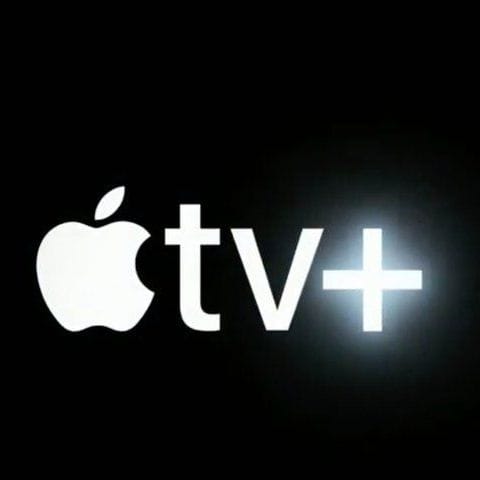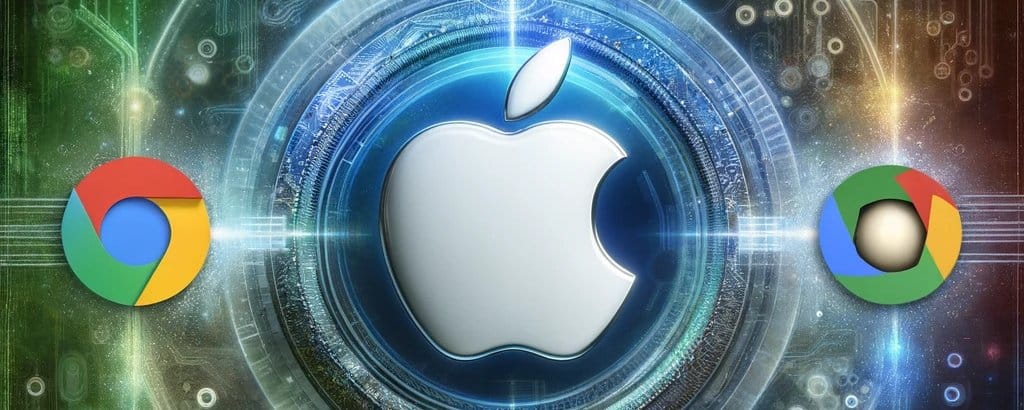Recently, I’ve been caught up in a whirlwind of comments on X about how Apple is losing to Netflix in terms of views and how they’ve failed to market their amazing shows. So, I thought I’d jump here and address the apparent confusion.
Everything started with a Bloomberg article titled “Apple Tries to Rein in Hollywood Spending After Years of Losses.” This caused some panic among those who only read titles and those who seek validation of their own beliefs.
While the doomsday and chaos presided over the replies, I read the Bloomberg article. Fully.
(You know, reading online? That thing where you click on the link and scroll while keeping your eyes on the text. Yes, there are a lot of words, but you’ll be alright.)
First, hats off to the journalists at Bloomberg for this in-depth analysis of some aspects of Apple TV’s business side.
Apple is a Tech Company
Now, let’s focus on Apple for a second. What business does Tim Cook have in Cupertino? Right, it’s a tech company that makes phones, computers, and other personal computing devices.
Suddenly, in 2019, it started an awe-inducing attempt to win over Hollywood. Did it cease to be a tech company? Of course not. Tech is still the core business. In other words, Apple makes money selling smartphones and personal computers, just like Disney sells entertainment products (i.e., movies and TV shows).
Similarly, Apple started making entertainment products as a secondary business, while Disney diversified into Theme parks (admittedly, they did it decades ago, but it doesn’t change the idea). My focus here is to help you get the business structure as a concept. While Apple is a tech company, it ALSO produces movies and TV shows.
Apple's New Business
Since 2019, Apple has invested an unholy amount of money, effort, and talent to get into Hollywood. Apple TV+ has been a super expensive side project with the sole purpose of establishing Apple in the Entertainment business. When you compete in a saturated market, making money in the first quarter, year, or even five years after launch can’t be the goal.
In this first stage, Apple was ready to drink Skele-Gro to grow an arm. A painful but rewarding process.
Apple TV+ was to bring recognition, attract talent, and once again uphold Apple as the company that produces quality, no matter the product.
Now that we have the business notion down let’s think some more. What do we know about Apple and the way they conduct business? First and foremost, they build reliable hardware. Yes, they look, feel, and are, in fact, expensive, but you know what you get when you buy an iPhone.
Apple has always had a benchmark to meet with its products, which is why it cannot greenlight absolutely everything like Netflix can. So, it did what it’s always been good at–pushing for quality, not quantity.
Apple shows are detail-oriented; they boast thoughtful cinematography, good writing, and outstanding acting. Apple TV+ attracted big-name actors and directors. It also made waves in the industry by winning the first Oscar for a streaming service movie.
Coda was the first streaming service movie to win an Oscar.
Apple TV+ has also received 231 Emmy nominations since its 2020 debut (72 this year, the best performance for the streaming service yet).
The Survivor
What else do we know about the situation in which Apple started poking around Hollywood?
Do you remember the Covid pandemic? Didn’t think you’d forget. However, you might have forgotten about strictly Hollywood-related events of the time. Apple TV+ outlived the Actors Guild and Writers Guild strikes. As the world went mad, the streaming service could’ve died in its infancy.

But it didn’t. Why? Because Apple, the tech company, had the means to reinforce the streaming platform. In Hollywood, Apple TV+'s CV didn’t look good: It had an irrelevant educational background and no prior job experience. It only had a strong reference letter from a prior employer.
Disney+ was the other candidate for “the streaming service of our hearts.” It launched exactly at the same time, had a back catalog spanning several decades, an established and hungry audience (mainly children), and, of course, long-standing franchises like the MCU and Star Wars. With such a head start, Disney was bound to win the role, right?
While it won in terms of subscriber count, I’d argue that no Disney+ show episode holds its ground against an Apple TV+ episode. Put one of each in the boxing rink, and Apple’s quality swipes Disney every time.
You can argue with me on this, and I will probably write another article to conduct this experiment. Let’s see how hot of a take this proves to be.
Apples to Apples?
The original article that sparked my thought process had charts comparing all the streaming services, with Netflix ruling above all of them. Many people in the comments asked the fair question if it’s even possible to replicate Netflix’s success. While it’s a valid argument, and Apple TV+ IS, in fact, a streaming service, one question is still eating away at me.
Should we compare Apple TV+ to Netflix at all? Isn’t it like comparing apples to netfli-oranges?
Comparing Apple TV+ to Netflix at this stage is like comparing a YouTube channel created 3 years ago to Mr. Beast’s channel. We’re making at least 3 mistakes:
We’re comparing products at different life cycles.
We’re comparing different approaches to content acquisition.
We’re comparing someone’s secondary business to someone else’s primary one.
My hypothesis is that earning from Apple TV+ wasn’t a top priority for the company, at least for the first few years. Apple is a company that doesn't rely on TV+ for cash flow. Yes, they’re killing more shows now than in 2019, but that doesn’t mean they’re going to stop producing great ones. Now that they’ve learned how Hollywood operates, they can optimize.
Apple Sucks at Marketing?
Another type of frustration-filled comment batch referred to the fact that Apple barely markets its shows. Apple TV owners see the new series on their home page all the time. As for people outside Apple’s infrastructure, it’s quite an ordeal to learn about such gems as Severance, Slow Horses, Lessons in Chemistry, Ted Lasso, Shrinking, Hijack, Presumed Innocent, and many others.
While a Reuters article mentions $500+ mln in 2021 for the Apple TV+ marketing budget, I couldn’t find any new data about their exact marketing spending. So, the statement about “Apple spending $5.75 on promotion” is only based on empirical evidence from a random commenter.
As you’ve read this far (thanks, btw), let me offer another hypothesis. Companies like Apple are usually conservative with marketing because they simply don’t need it. They have strong brands that sell themselves.
Let’s be real. Apple wasn’t going to push the streaming service that has yet to prove itself headfirst into a non-Apple audience’s face. They played it slow and smart, only pushing the Apple TV+ to its loyal users via Apple One and other subscriptions. They empowered us so we could amplify its appeal to others via word-of-mouth. Well, it looks like it worked with me, didn’t it?
As for the spending cuts vs. the quality of Apple TV+ shows, I don’t think it’s going to be as much of an issue as naysayers make it out to be. Sure, creators on Apple shows have to tighten their belts a little, but I don't think "reining in the budget" equals "producing crap" in Apple’s dictionary.
Apple Gets Its Users
Tim Cook might not make billions from his streaming service like Netflix does, but he knows Apple users like the palm of his own hand.
When you turn on an Apple TV show, you know it's going to be something you'd want to spend time with. It’s never a background noise, and you shouldn’t eat dinner while watching, or you’ll miss something important. Apple wants you to pay attention. Some comments blame Apple for being “elitist” and having convoluted plots, but that’s the exact reason their programming is so good: they spare effort to make great content so that you enjoy it with care and think about it a little longer, just like they did.
As a long-time Apple product user, I know exactly what they’re doing. With Apple products, you always know what you get. When you buy an iPhone, you’re sure there won’t be an ugly fold line in the middle of your screen. When you watch an Apple TV+ show, there’s a minimum bar of sleekness and attention to detail you are sure to get.
With Apple TV+, the techie Cupertino dwellers, once again, did what they do best: build a superior product, take calculated risks, and deliver impeccable quality.



